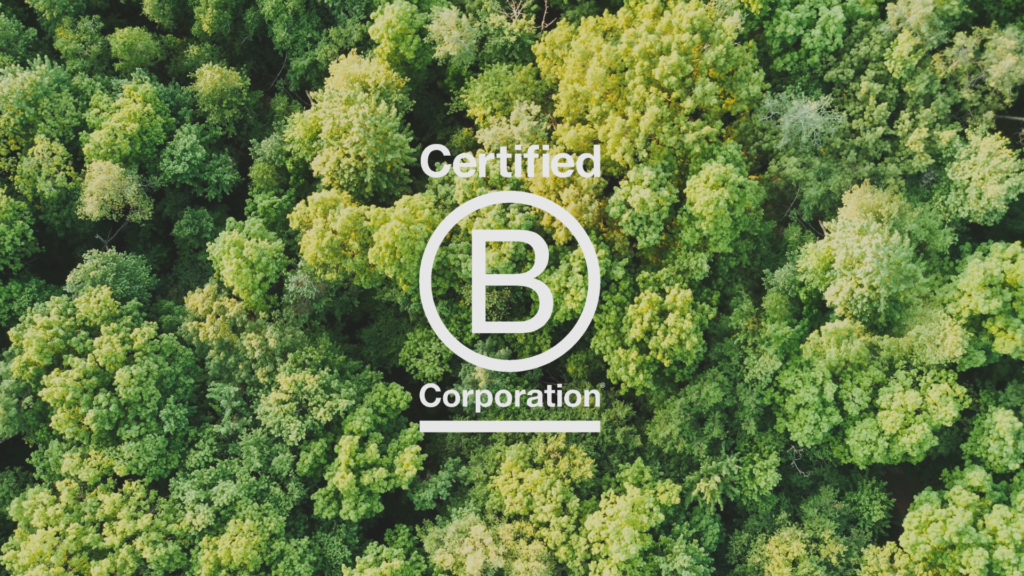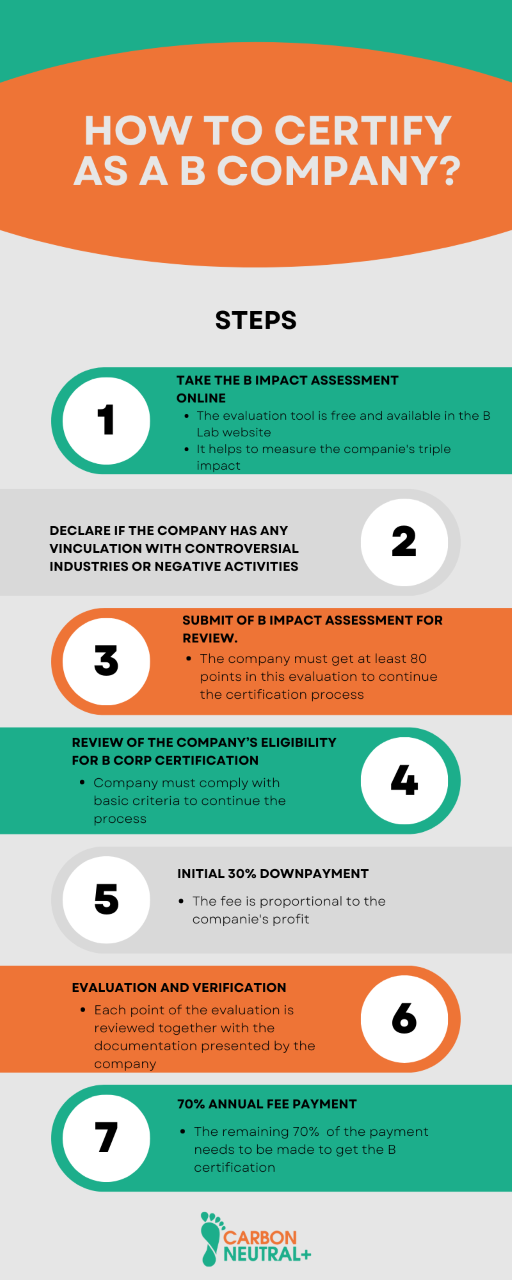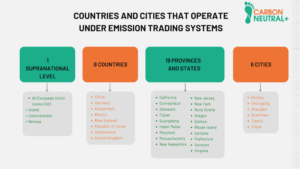
What is carbon capture?
Carbon dioxide (CO2) emissions generated by human activities have led to an accumulation of greenhouse gases in the atmosphere that is causing an increase in

B companies differentiate from others by meeting the highest social and environmental standards. In other words, these are companies that are not only focused on making money but also on solving problems for the world’s well-being. They are also known as “purpose-driven companies.”
B companies are usually for-profit companies that have undergone a certification process overseen by the NGO “B Lab” or “Sistema B” for the Latin American territory. BIC companies are a term used in Latin America for companies with a similar DNA to B companies regarding their social and environmental purpose. However, they go through a different certification process, which in their case, is supervised by the federal government and regulated by laws.
In this article, we will tell you what B companies and BIC companies are. We will also go through the process that any company that wants to be certified under the B Lab standard must undergo and what are the benefits of being recognized as a B Company.
What are B Companies?
B companies intend to be the best companies for the world and not of the world.
These companies continuously measure their social and environmental impact and make decisions considering the consequences of their actions on the community and the environment. These companies want to change how business is done, using their strength to provide solutions to social and environmental problems.
To be certified as a B company, it is necessary to prove that the institution considers not only its economic profits but also the impact that its decisions have on its employees, customers, the environment, and society as a whole.
How many B Companies are there in the world?
There are currently 5537 certified B companies worldwide and 898 in Latin America (August 2022). In addition, more and more companies are seeking to transform their DNA to generate a collective impact and acquire the B corps certification.
The four key elements of B companies
B companies have four key elements:
The B Impact Assessment measures and analyzes a company’s 5 most relevant areas: Government, Employees, Customers, Community, and Environment.
Minimum requirements to be a B Company.
Any company wishing to certify under the Sistema B standards must comply with specific requirements:
How to certify as a B Corporation?
The steps to follow to certify as a B company according to Sistema B are:

What is a BIC company?
BIC companies integrate economic, social, and environmental values in their businesses. BIC companies are not non-profits but a part of the world’s productive economy. What differentiates them is that they are conceived as projects that seek to generate a positive impact on society.
BIC companies is short for “empresas de beneficio e impacto colectivo”, which means “companies with a collective benefit and impact”.
There is a bill in Argentina to grant benefits to all companies that fall into BIC companies requirements. However, this project has not yet been approved for its implementation.
Peru, Ecuador, and Colombia already have a BIC law. This law aims to recognize the benefits they provide to society and this brings different incentives for them such as programs that facilitate access to loans and public procurement, among others.
What is the difference between a B company and a BIC company?
The main difference between these two companies is the organism that grants the certification and endorses the categorization of the project as triple impact.
In the case of B companies, certification is granted by an organization called B Lab, or Sistema B, in the case of Latin America.
In the case of BIC companies, what is modified is the bylaws or social contract, which would include the positive environmental and social impact of the company. This modification is made by the national government and not by a private organization like B Lab or Sistema B.
Both projects seek to create companies based on a triple impact economy, that consider not only the economic profits but also its environmental impacts from the moment of the project’s conception.
What are the benefits of being a B Company and BIC company?
Some of the benefits of BIC and B companies are:
B companies in Argentina: some examples
Here you can find the directory with all the B companies in Argentina and Latin America.
Conclusion
The B companies and BIC movements are gaining momentum. These corporations prioritize, above all things, their social impact and transparency, two aspects of business activity that investors and consumers have often overlooked in the past.
These companies can have a more significant impact on the world around them and more success in the long run.
Do you need help in the certification process as a B company or BIC company?
CARBON NEUTRAL+ can help you score points in the B Impact Assessment, specifically in the environmental part. Measuring your carbon footprint, operating with renewable energies, and offsetting your footprint are all activities that add points and that CARBON NEUTRAL+ offers.
In case you would like to request a demo to use the calculator and measure your company’s carbon footprint, please contact us.

Carbon dioxide (CO2) emissions generated by human activities have led to an accumulation of greenhouse gases in the atmosphere that is causing an increase in

According to the Emissions Gap Report 2022, the growth rate of global greenhouse gas (GHG) emissions has declined over the last decade. Between 2010 and

As international agreements related to corporate greenhouse gas emissions (GHG) come into force, the regulations associated with the generation of these emissions increase. This is

Climate change is one of the greatest concerns of our time. This phenomenon is generating consequences that are difficult to reverse, such as an increase

The Paris Agreement is an international agreement adopted on December 12, 2015 during the United Nations Climate Change Conference (COP21) in Paris, France. One of

As the world faces the looming effects of climate change, more and more companies are recognizing the importance of adopting sustainable strategies that aim to
| Cookie | Duration | Description |
|---|---|---|
| cookielawinfo-checkbox-analytics | 11 months | This cookie is set by GDPR Cookie Consent plugin. The cookie is used to store the user consent for the cookies in the category "Analytics". |
| cookielawinfo-checkbox-functional | 11 months | The cookie is set by GDPR cookie consent to record the user consent for the cookies in the category "Functional". |
| cookielawinfo-checkbox-necessary | 11 months | This cookie is set by GDPR Cookie Consent plugin. The cookies is used to store the user consent for the cookies in the category "Necessary". |
| cookielawinfo-checkbox-others | 11 months | This cookie is set by GDPR Cookie Consent plugin. The cookie is used to store the user consent for the cookies in the category "Other. |
| cookielawinfo-checkbox-performance | 11 months | This cookie is set by GDPR Cookie Consent plugin. The cookie is used to store the user consent for the cookies in the category "Performance". |
| viewed_cookie_policy | 11 months | The cookie is set by the GDPR Cookie Consent plugin and is used to store whether or not user has consented to the use of cookies. It does not store any personal data. |